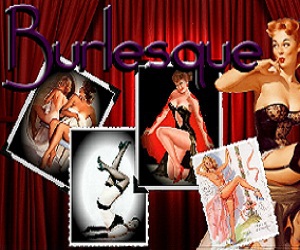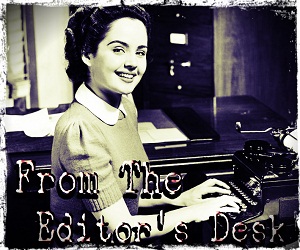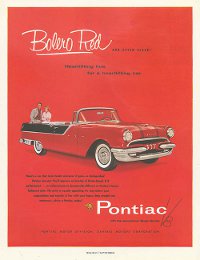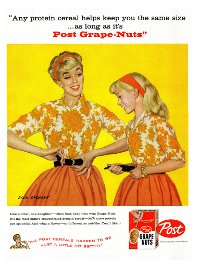 Going to see The Temperamentals at the end of Pride Month was as deeply stirring as watching a reenactment of the signing of the declaration of independence on July 4th, if not more so. Because, while the history of how America fought and won its independence is a story that is well worn, the story of how, long before the Stonewall Riots, a group of men fought for their own personal freedom is one I’d never even heard about before seeing this amazing play.
Going to see The Temperamentals at the end of Pride Month was as deeply stirring as watching a reenactment of the signing of the declaration of independence on July 4th, if not more so. Because, while the history of how America fought and won its independence is a story that is well worn, the story of how, long before the Stonewall Riots, a group of men fought for their own personal freedom is one I’d never even heard about before seeing this amazing play.
The Civil Rights movement didn’t happen in one fell swoop; it progressed bit by bit and built on itself event by event. Brown v. The Board of Education beget Rosa Parks and the Montgomery Bus Boycott which paved the way for Martin Luther King, Jr. Similarly, the Gay Rights Movement didn’t burst forth, fully formed, in one great disco-as-wreaking ball through the walls of the Stonewall Inn. By definition, it simply couldn’t. Rather, it started off years earlier with Harry Hay, Rudi Gernreich, and a manifesto which became The Mattachine Society. The Temperamentals is the play which tells their story.
The Temperamentals, presented by Man Underdog LLC and Daryl Roth, written by Jon Marans and directed by Jonathan Silverstein does an amazing job of turning back the clock and taking us to a time when being “Temperamental” didn’t have a template or a conventional means of expression or even a right to exist openly. All you had as a Temperamental was a need and a hope. And a secret.
Harry Hay (Thomas Jay Ryan) and Rudi Gernreich (Michael Urie) are like any other couple, really. They have their squabbles, their dreams, their games. They try to convince each other to give in to this or that desire. They pout, they make up, they yearn for more time with each other, more affection from each other, more … well … just MORE.
Harry, a married-with-children man who, aside from his affiliations with the communist party and his Temperamental Manifesto has managed to fly pretty much under the radar all his life is on the verge of turning it all around. With the support of Rudi the two are able to branch out and garner support from other Temperamentals who have the courage to admit that they are, in fact, temperamental. It’s not easy (there’s always the man who denies it vehemently, but then offers to go off behind the dunes for a little fun); and while they’re able to bend the ear of such luminaries as Vincente Minnelli (excellently played by Tom Beckett when he’s not in his main character of Chuck Rowland) they don’t always like what they hear. For instance, Vincente would rather advise Rudi to “pass” … find a woman, make a family, do what he did with Judy … in order to bolster his career as a designer. Beckett-as-Minnelli does manager to walk away with one of the funniest lines of the night when, baffled at how it happened, he tells Harry “You have twisted my story into an even more inspirational one!” However, later on in the play he also has the most chilling line when he says “Marrying (Judy) was the best decision I ever made for my career”. How awful. Of everyone. For everyone. For every reason.
Others, eventually, do manage to join Harry and Rudi’s cause, namely Chuck Rowland (played by the aforementioned Tom Beckett) Chuck’s ex-lover and current room mate Bob Hull (the delightful Matthew Schneck) and Bob’s current lover, the tough carney Dale Jennings (Sam Breslin Wright). Together these men become The Mattachine Society, and celebrate the fact that they have now formed a group where before none existed because “they didn’t know they WERE a group”.
Set Designer Clint Ramos does what at first appears to be a very minimalist job with the stage (a few chairs, some bare bulbs), but as The Temperamentals unfolds, the beauty and genius of the bareness of the stage starts to make sense. The stage echoes the lifestyle; there was no place for a gay man to fit in 1948, and so the stage is empty. It exists as a void of space, a nowhere land, where the four men in various incarnations can speak lines such as “I was a master at making excuses,’I’m a people watcher‘ I said” in order to explain a lingering glance at another man. Or … “I held in my emotions …” “I was ashamed …“.

history in the making
Later, however, the emptiness of the stage reflects something else altogether. These were men who were creating something where nothing existed; and so as they begin to find each other and organize the emptiness becomes something akin to freedom — since there is no place for them, there is nothing to confine them either. We can see the promise in their future as they exclaim “Here on a hill in SilverLake four men met to cry out about their own uniqueness!” As they begin to form their society they can have it be whatever they want it to be, based on nothing they’ve known in the past. Even as they are former members of the communist party, they eschew those conventions in order to drive their dream to new heights. In the beginning they are energized and galvanized by their union; they agree to make all decisions unanimously, almost naively believing that this passion for building a new world together is enough to keep them of one mind as the years move forward. Of course, that isn’t true, but it’s a wonderful way to start an uprising …
Keeping in mind that this is the dramatization of a true story, it’s still possible to get it wrong: this is real life after all. But The Temperamentals gets it right at each turn; with an economy of sets, words, designs, and even players (all but Thomas Jay Ryan play multiple roles) an entire revolution is brought forth in this small room and reformation grabs hold as surely love does. Because, really, the whole of the play is fueled by love, and the desire to have that love recognized as being as valid as the love between ANY two human beings.
Today, with the the phrase “Gay Marriage” everywhere it’s first funny, then devastating to realize that at one point when the issue is raised “Should temperamentals get married …” the implied continuation of that question was ” … to women in order to be accepted? Or should they remain bachelors and remain under scrutiny?” It’s another moment in the play when the enormous road from HERE to THERE really seems infinite.
Ironically, as Hay decides to divorce his wife and starts wearing various brilliantly-colored scarves over his suits (“I intend never to be taken for hetero again!“) so Rudi begins to tow the hetero line, succumbing to the pressures of his industry (another marker of how far the road from Here to There stretches … inconceivable now to think that there was EVER a time when, in order for a designer to be taken seriously, he had to pass for straight). While Hay and Gernreich trade places, they find them selves becoming the yin to the other’s yang … yet they must part, for they’ve outgrown each other.
Ironically, in a terribly sad way, by the end of the play The Mattachine Society and it’s brave founder have outgrown each other as well … and a break comes there as well with Harry moving off to start the Radical Faeries. But that’s another story, and perhaps another play for another time.
I can not stress enough how tremendously talented everyone of these cast members are, easily switching between characters, sometimes with as little as the tilt of a shoulder and the pitch of an accent. This marvelous play has been extended until August 23rd. Help keep the spirit of Pride Month going a little longer this summer … and go see The Temperamentals.
The Barrow Group Theatre
312 West 36th St. (Between 8th & 9th Ave) 3rd Floor
All seats $50
For performance times and tickets, please visit SmartTix or call (212)868-4444







{ 0 comments… add one now }